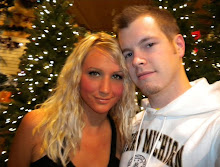Sembene Ousmane takes a look at post-colonial Africa in his novel, Xala. There are many differences in the cultures. The older characters still follow traditional Muslim and African beliefs and customs, such as the practice of polygamy. They also believe that El Hadji's "xala" is the result of a curse placed upon him by either one of his other wives or one of his business associates. Yay Bineta encourages El Hadji to participate in the traditional pre-wedding customs, although he refuses. She blames his "xala" on his refusal to follow tradition. However, the youthful characters seem to be a lot more modernized, or more influenced by European culture. Rama and Pathe, in particular, are the two youths closely followed in the novel. Rama is strongly opposed to polygamy and wishes her mother were able to divorce El Hadji. She and Pathe have pre-marital sex with her boyfriend/fiance. Pathe is a young doctor who believes El Hadji's "xala" is purely psychological. The registrar, while speaking to Pathe abour El Hadji, defends this conclusion, but says, "we are in Africa, where you can't explain or resolve everything in biochemical terms. Among our own people it's the irrational that holds sway." He realizes that the older community clings to traditional customs and beliefs, even though the more scientifically-inclined youth views this as somewhat foolish, or "irrational." However, Rama, one of the most modernized characters in the book, refuses to speak French and instead speaks Wolof, which is puzzling.
I found a quote from Sembene Ousmane while browsing the web: "As far as I am concerned, I no longer support notions of purity. Purity has become a thing of the past. . . I constantly question myself. I am neither looking for a school nor for a solution but asking questions and making others think."
Post-colonial Africa struggles to find its identity in a world torn between tradition and modernization. Rama is one of the most European-influenced characters in the book, yet she clings to her traditional African language. El Hadji is one of the more traditional characters, yet he refuses to participate in traditional pre-marital rituals. Each individual character mimics their countries struggle with identity. The novel was very interesting, and incredibly amusing.

1 comment:
I like the way you weave your comments on the novel into a discussion of neo-colonialism. It fits!
Post a Comment